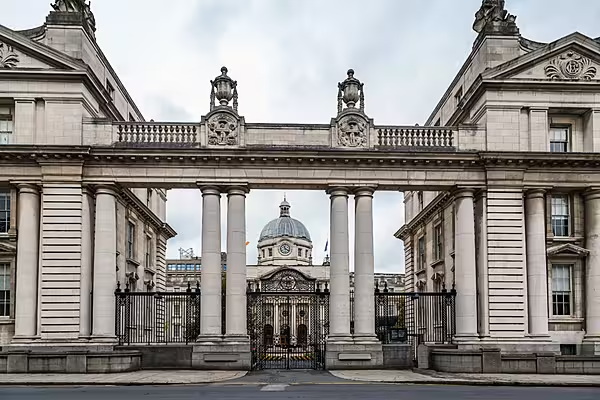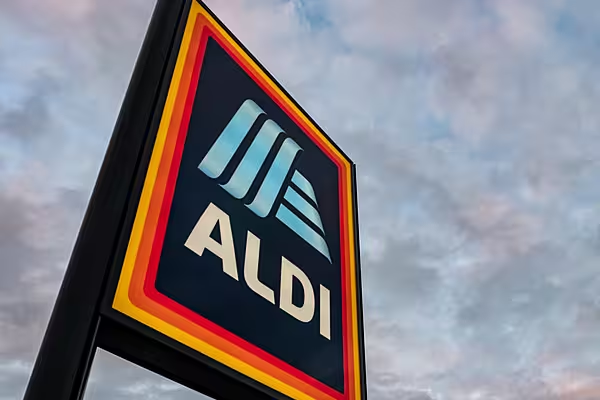Retail Ireland, has said the next Government must address key challenges facing the sector in the next Programme for Government.
Election 2020 will take place on Saturday, 8 February, 2020.
The Ibec group that represents the retail sector, has set out a series of key asks, which it said were vital to safeguarding the future success of the sector and the role it plays in the wider community.
“The success of the retail sector is central to the success of the wider economy. In turn, a successful economy is a prerequisite to a successful society, with quality, well-funded public services and vibrant, thriving communities," said Arnold Dillon, director, Retail Ireland.
"Retail is the single biggest private sector employer in the country, with around 300,000 employed in every village, town and city across Ireland. The sector generates around €7 billion in tax revenue for the state every year."
General Election 2020: Key messages
Boosting education and skills
The retail sector was an early advocate of in-work learning and the continuous up-skilling of its workforce. Hundreds of thousands of people, from diverse backgrounds, have benefitted from varied and fulfilling careers in the sector.
A greater share of the National Training Fund budget should be allocated to Skillnet programmes to allow networks, such as Retail Ireland Skillnet, to build on this success into the future.
Addressing retail crime
Many retailers are losing significant revenues due to the cost of anti-social behaviour, theft and insurance fraud. The impact on the staff who have to manage these issues cannot be overstated.
More funding is needed for An Garda Siochana to allow it to effectively tackle retail crime and increase its visibility in the community.
The increase civilianisation of the force will help free up more Gardaí for crime investigation and prevention.
Preparing for Brexit
While we have a Withdrawal Agreement, the future relationship between the EU and UK is unknown and the deadline is tight.
There is the very real prospect of significant trade barriers between Britain and Ireland from January 2021 and retail supply chains are particularly exposed. An ambitious EU-UK trade deal, that seeks to avoid any trade disruption, must be the aim.
At the same time, we must plan for all eventualities. Significant public investment will be needed to improve trade and customs infrastructure and help companies adjust if we face a hard Brexit at year end.
Investing in the digital future
Across all age groups the percentage of people using online mediums to make everyday transactions are increasing. Retailers must become online leaders if they are to remain competitive and grow into the future.
The expansion of Enterprise Ireland’s Online Retail Scheme is needed to make it easier for SMEs to compete in this space.
Ensuring a fair and sustainable system of rates
The recent Local Authority (Rates & Other Matters) Act 2019 was meant to streamline the rates system. It did not do this. Additional measures are now needed to address outstanding issues.
These include: A reformed system for rates collection; an end to the current antiquated process of linking rates to rents and substantial reform of the revaluation process.
When property tax rates are reduced it is not equitable for business to pick up the revenue shortfall through the rates system.
Tackling rising insurance costs
Rising insurance premiums, fraudulent and exaggerated claims and general inefficiencies in our insurance market have become a major competitiveness issue for retailers in recent years.
Awards for soft tissue injuries in Ireland are over four times those of the UK and are unsustainable.
The pace of reform has been far too slow and the establishment of a Judicial Council to review legal awards is an urgent priority.
Addressing environment challenges
Retailers have a key role to play in addressing environmental challenges.
The sector is committed to waste prevention and reduction, and invests enormous amounts each year to ensure compliance with environmental legislation. It is vital that new rules in this area are practical and effective.
Any new proposals, such as the imposition of new environmental levies, must be fully supported by regulatory impact assessment to ensure they achieve their stated objectives and do not simply become a new revenue stream.
Allowing Irish business to compete
The cost of doing business in Ireland is continuing to rise, particularly in the retail sector.
This continues to put us at a significant disadvantage to businesses operating in Northern Ireland.
Any increase in the National Minimum Wage should be proportionate and in line with current and predicted levels of inflation over the coming year.
We believe inflation tracked increases offer retailers certainty and enable them to plan for the medium term and build business plans around a manageable cost base.
Dillion concluded: "Apart from the positive economic impact of the sector when it comes to jobs, investment and tax generation, retailers also play a vital role in improving the communities in which they operate. The sector invests heavily in training and skills, and supports a wide range of social and community projects."
© 2020 Checkout – your source for the latest Irish retail news. Article by Donna Ahern. Click subscribe to sign up for the Checkout print edition.






